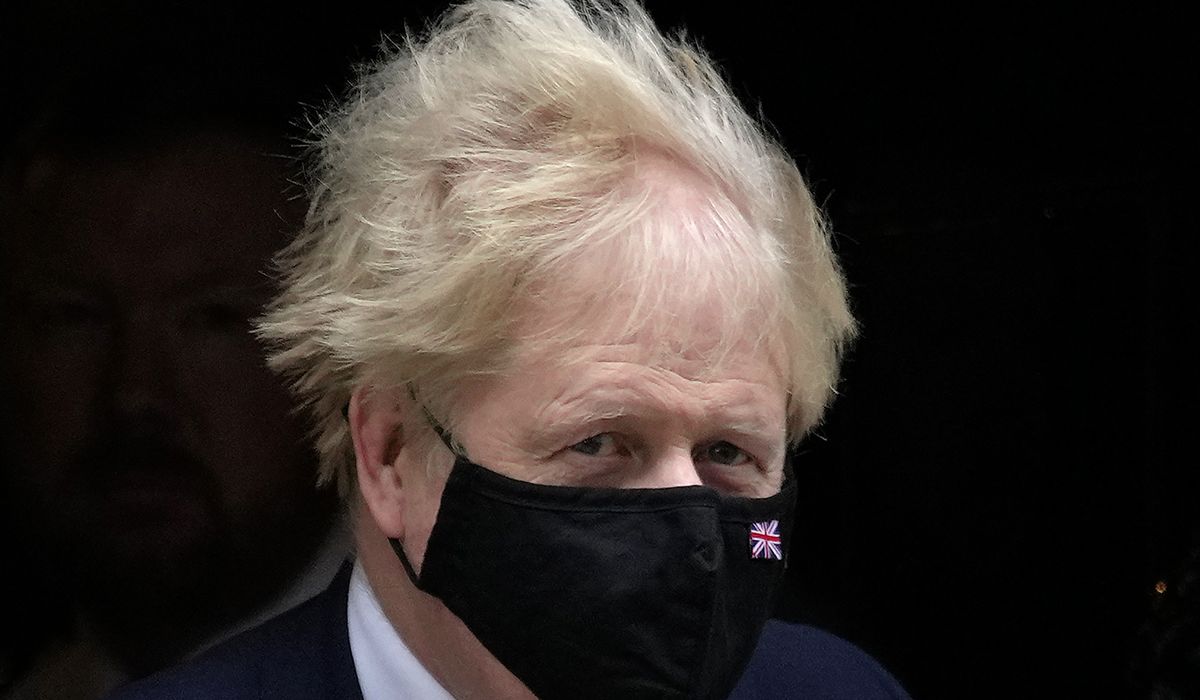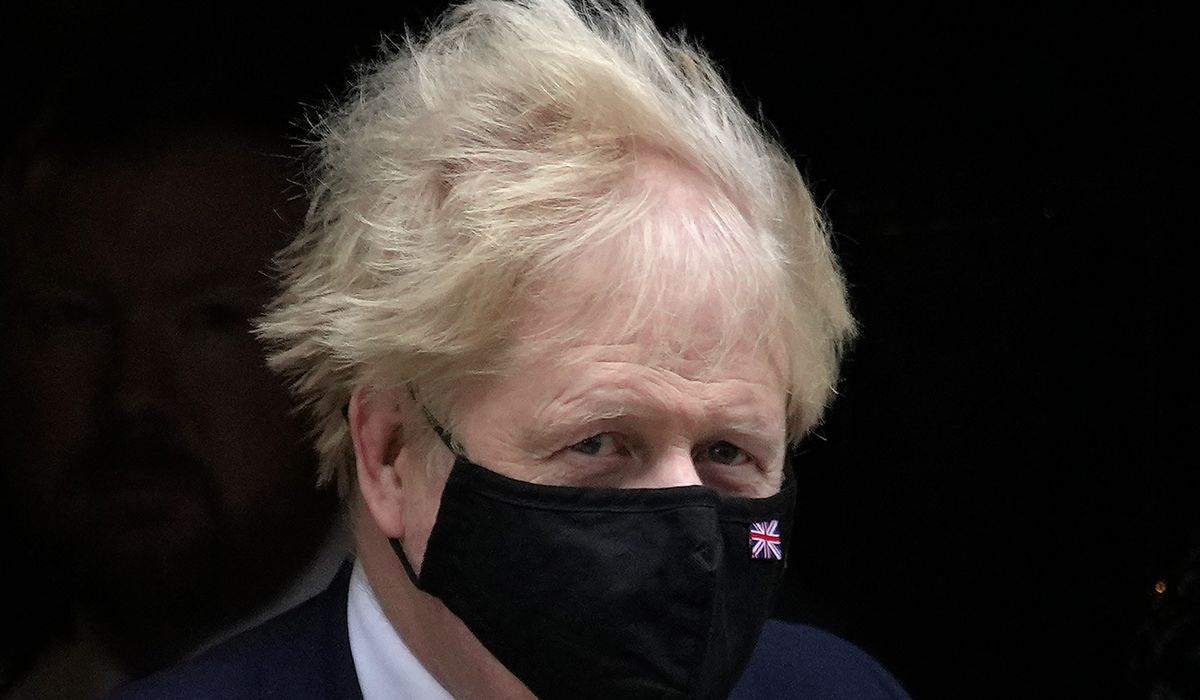
Boris Johnson mounted a last-ditch defense Wednesday against outraged and energized political enemies who say that a string of COVID-19 lockdown-breaching parties ought to be the final straw in what has been a tumultuous 2½-year reign for the colorful British prime minister.
Mr. Johnson, who assumed power at Downing Street in 2019 amid the long-running Brexit saga, now faces the most significant test of his political career as Labor Party opponents and even some allies in the ruling Conservative Party say he ought to step down. The entire nation and political watchers worldwide are eagerly anticipating the results of a report from investigators probing whether Mr. Johnson intentionally ignored protocols by taking part in office parties, birthday celebrations and other gatherings while ordinary Britons faced widespread coronavirus restrictions on even the smallest of public events.
Although polls have swung Labor’s way in recent weeks, the Conservatives retain a substantial majority in Parliament and appear unlikely to lose power. But Britain is facing what could be a divisive and uncertain leadership battle just as the United Kingdom and the West are struggling to project unity in the face of Russian pressure on Ukraine.
Adding to his winter woes, Mr. Johnson is facing fresh heat over charges that he authorized the evacuation of 200 animals from an Afghan animal charity during the height of the summer’s military withdrawal from Kabul. He is accused of prioritizing dogs and cats over people. Downing Street has vehemently denied those charges. Mr. Johnson’s office said Wednesday that the prime minister “didn’t instruct officials to take any particular course of action” with regard to prioritizing the rescue of animals even as thousands of Afghan allies were left behind.
But emails released Wednesday by Parliament’s Foreign Affairs Committee suggest that he may have personally authorized the animal airlift or at least was aware of the effort.
Mr. Johnson met hostile lawmakers head-on and argued that he deserves to remain in power. He stressed that he is still laser-focused on his responsibilities as prime minister, including managing Britain’s role as a critical voice in NATO during the Ukraine crisis.
A leadership shake-up in Britain during the Ukraine crisis could rattle NATO and lead to more cracks in the unified front that the U.S. and Europe are trying to project.
“What I am focused on is the fastest recovery of any European economy from COVID, the fastest booster rollout, 400,000 more people on the payrolls than when the pandemic began. … We have gotten all the big calls right,” Mr. Johnson said during a raucous Prime Minister’s Questions session.
“We have a crisis on the borders of Ukraine,” he said. “The U.K. government is bringing the West together, led by this government and this prime minister, and foreign minister and defense minister, to bring the West together to have the toughest possible package of sanctions” on Russia should it launch an invasion.
Mr. Johnson said he had “absolutely no intention” of resigning despite growing pressure from across the political spectrum and from influential tabloids that say the prime minister made a mockery of COVID-19 safety precautions and embarrassed the nation. His aides have been working feverishly behind the scenes to head off a call by Conservative backbenchers for a no-confidence vote in his government if more damaging revelations come to light.
Grim history
History is also not on his side — the Conservatives have a history of unsentimentally tossing leaders overboard when it looks like they may become political liabilities, as happened to Margaret Thatcher and John Major. In addition, pundits say, what has come to be known as “Partygate” puts Mr. Johnson on the defensive against one of the most lethal political accusations: moral hypocrisy.
“Boris Johnson has made us all look like idiots — why on earth did we stick so rigidly to all the rules?” Alice Thomson, a columnist with The Times newspaper, wrote this week.
Leading U.K. civil servant Sue Gray is expected to release her report into possible COVID-19 party violations by the prime minister’s office this week. Mr. Johnson has vowed to release the Gray report publicly — a promise he reiterated Wednesday. The prime minister also is expected to address Parliament as soon as the documents are made public.
The controversy has consumed the United Kingdom for weeks, but it reached a new level Tuesday when London’s Metropolitan Police said they had opened a criminal investigation into the ordeal. It’s not clear whether they will personally interview the prime minister.
Meanwhile, Mr. Johnson’s political rivals have seized on the scandal to bring him down.
“Prime minister, if you do not understand the significance of what happened yesterday, then I really do despair,” Labor Party leader Keir Starmer said about the opening of a criminal investigation.
“Does the prime minister really not understand the damage his behavior is doing to our country?” he said. “Frankly, the public have made up their minds. They know he’s not up for the job, and that’s what really matters here.”
Indeed, poll numbers suggest that Mr. Johnson faces a tough fight to survive. A YouGov survey released Tuesday found that 62% of British adults believe he should resign as prime minister. That percentage has risen 6 percentage points since Jan. 11, according to YouGov, suggesting that Mr. Johnson’s public support is eroding the longer the Partygate scandal remains in the headlines.
Leading British media outlets say those figures should be no surprise. They argue that Mr. Johnson’s behavior has struck a nerve among voters exhausted by the COVID-19 pandemic and desperate to return to normal life.
“The hypocrisy of a leader who says one thing and does another, and who refuses to accept that rules his government told others to stick to … also apply to him, is not only prompting anger with him but could poison attitudes to politicians and public life more generally,” said a Tuesday editorial in The Guardian.
Some of Mr. Johnson’s allies have downplayed the incidents in question. They say the scandal has been blown out of proportion.
“I’m sure there are ministers that get parking tickets and speed fines, too,” Conservative lawmaker Andrew Rosindell said. “Lots of people break the law in small ways, sometimes unintentionally. He’s not robbed a bank.”
• This article is based in part on wire service reports.
For more information, visit The Washington Times COVID-19 resource page.








